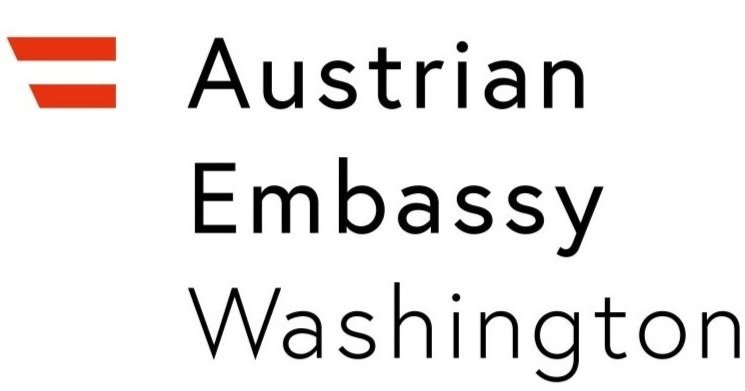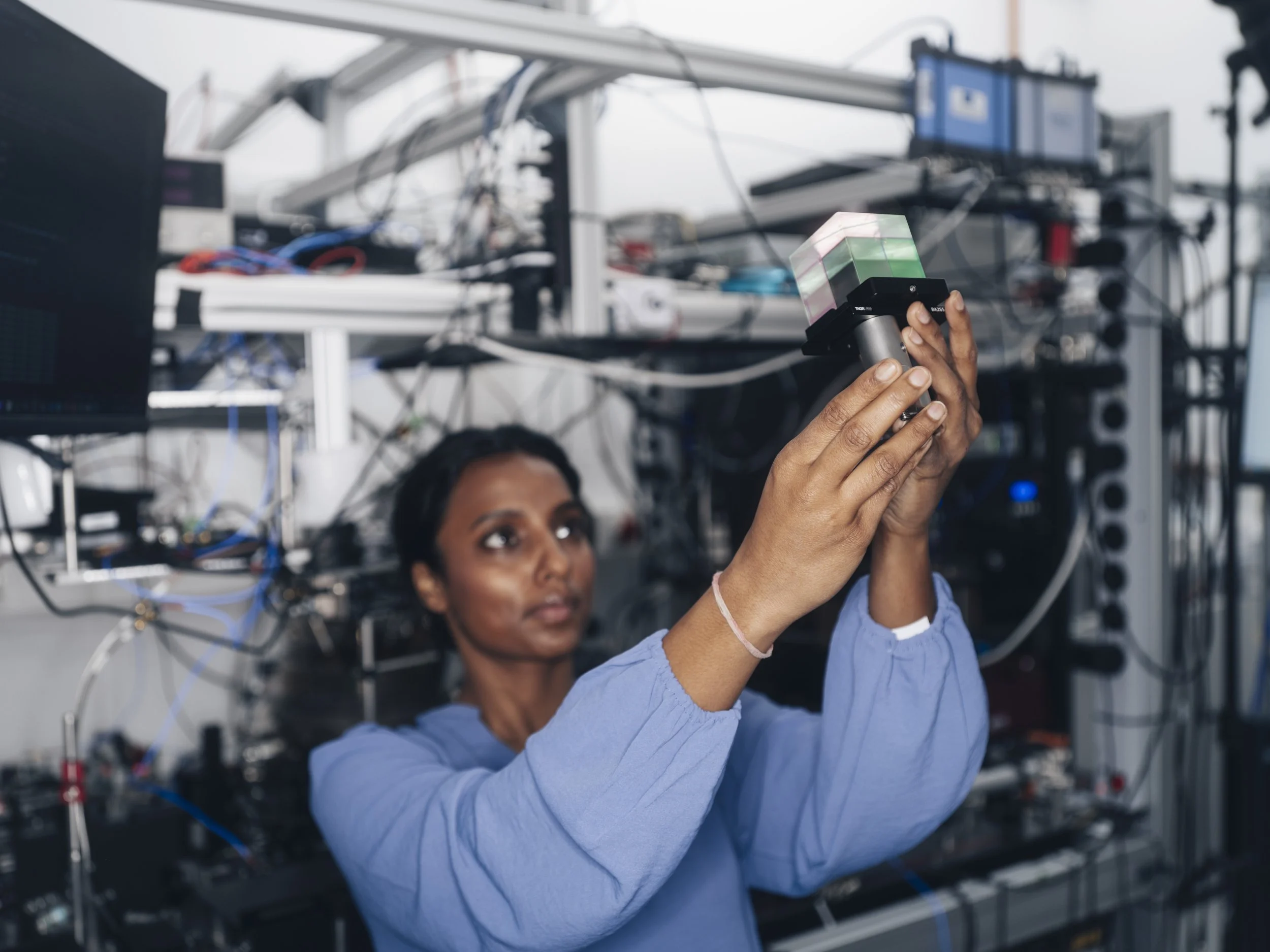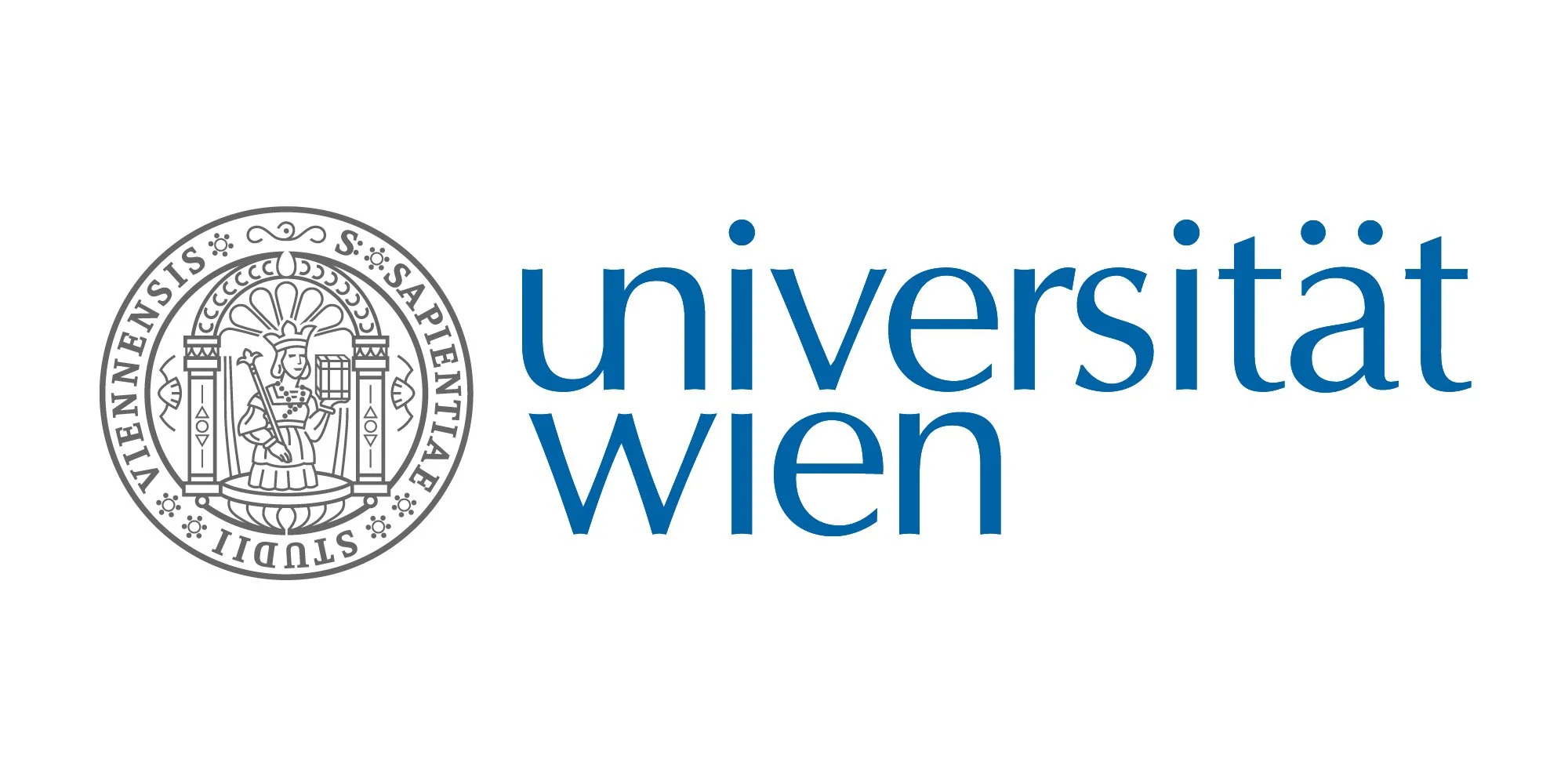Quantum Science at the University of Vienna
Pushing the boundaries of quantum physics and gravity: The Aspelmeyer Group develops quantum measurement and control techniques to gain new insights on macroscopic quantum physics, on gravity at small scales and, in the long run, on the phenomenology of the gravity-quantum interface in table-top experiments.
Photo: Ian Ehm
World-Class Expertise and International Collaborations Grounded in a Rich, Historical Tradition.
The University of Vienna is home to one of the world’s leading quantum research groups, renowned for its expertise in both theoretical and experimental quantum physics. The Quantum Optics, Quantum Nanophysics and Quantum Information (QQQ) group builds on a rich tradition of linking physics, philosophy, and an instrumentalist approach, which played a crucial role in establishing the prolific fields of quantum foundations and quantum information science.
The quantum group has pioneered landmark experiments, including long-distance quantum teleportation, the first demonstrations of photonic cluster states and blind quantum computing, cooling of nanomechanical mirrors, and interference with macroscopic molecules. The group’s most prestigious recognition came with the 2022 Nobel Prize in Physics, awarded to Anton Zeilinger for his groundbreaking contributions to the field of quantum science and technology.
Today, the group encompasses a wide spectrum of research in theoretical and experimental quantum foundations, gravitational quantum physics, quantum computing, communication, simulations, sensing, and quantum machine learning. With more than 170 staff members, the team is dedicated to advancing fundamental quantum science and its intersection with other physical theories. Across 18+ high-tech laboratories, scientists with diverse expertise are paving the way for the second quantum revolution.
The research builds on a long-standing tradition and excellence, which began three decades ago with Zeilinger’s pioneering experiments, alongside theoretical work led by Reinhold Bertlmann. Building on these achievements, the second generation, including Časlav Brukner, Markus Arndt, Markus Aspelmeyer, and Philip Walther, established a research group that is now among the world’s leading centers for photonic quantum computing, molecular quantum optics, nanomechanics and gravitational quantum physics.
Quantum frontiers in photonics: The Walther Group drives advanced photonic quantum technology for applications in quantum information processing and experimentally investigates foundations of quantum science.
Photo: Ian Ehm
The third generation, represented by six new group leaders—Norbert Schuch, Beatrix Hiesmayr, Nikolai Kiesel, Thomas Juffmann, Andreas Nunnenkamp, and Borivoje Dakić—brings a new level of diversity to quantum science, advancing quantum many-body physics, quantum thermodynamics and levitation, theoretical quantum foundations, quantum information theory, and quantum sensing.
“The diversity of topics and research excellence, strong synergy between theory and experiment, and the education of new generations are among the key success factors,” says Borivoje Dakić, vice-speaker of the quantum group (discover the exciting research of the Quantum Group here).
World-Class Training and Collaborations
A clear measure of the group’s success is its numerous publications in top journals such as Science, Nature Portfolio, and Physical Review Letters, as well as the prestigious prizes and awards ranging from the Nobel Prize to ERC grants, as well as the Wittgenstein Prize and START Prizes from the Austrian Science Fund. The group actively contributes to the broader scientific community by (co-)organizing major international conferences and summer schools. Furthermore, a key mission of the group is to train the next generation of internationally competitive students. Their early-stage research community is embedded within the Vienna Doctoral School in Physics and the Vienna Center for Quantum Science and Technology (VCQ), uniting doctoral candidates from 40 countries across four continents.
A key factor in the quantum group's success is its strong network of cross-institutional collaborations. The group is embedded in the national Cluster of Excellence Quantum Science Austria (quantA) and the Vienna Center for Quantum Science and Technology (VCQ), and plays a vital role in the SFB BeyondC consortium, which focuses on pushing computation beyond classical limits. Additionally, the group maintains close collaborations with the Institute for Quantum Optics and Quantum Information Vienna (IQOQI-Vienna) of the Austrian Academy of Sciences (ÖAW), including partnerships within the Research Network Quantum Aspects of Spacetime (TURIS).
Quantum complexity at its core: The Schuch Group explores the interface of quantum information and computation and quantum many-body physics, revealing the intricate structure of their underlying entanglement.
Photo: Ian Ehm
A Leading Role in Quantum Tech Transfer
Beyond fundamental research, the commercial potential of quantum science is gaining increasing attention worldwide. The transition from laboratory to market is essential for strengthening Austria’s innovation strength and economic impact through patents, spin-offs, and industry collaborations.
In this context, Vienna has emerged as a hub for quantum light technologies, building on its longstanding expertise in quantum optics. Several successful spin-offs include QUBO Technology, VitreaLab, NDx Bio GmbH and Crystalline Mirror Solutions, which was later acquired by Thorlabs. Beyond spin-offs, the ambition of the Christian Doppler Laboratory for Photonic Quantum Computer is to transition photonic quantum computation from small-scale, proof-of-principle demonstrations into a regime where large-scale, universal quantum computation becomes feasible. These companies and institutions exemplify how cutting-edge research can translate into market-ready technologies.
The University of Vienna has taken a leading role in coordinating tech-transfer initiatives in collaboration with VCQ and quantA. Among these is the quantum innovation lab, an entrepreneurship program designed to guide researchers at all career stages through the process of building a startup, equipping them with essential skills, mentorship, and industry connections. Additionally, the “Entrepreneur-in-Residence program” at VCQ helps researchers identify promising business ideas while facilitating valuable connections with investors and industry partners. In 2025, the quantum group will host a representative of Wolfram Research as part of the program.
Building Bridges Through Transatlantic Collaboration
Quantum scientists at the University of Vienna and US universities have a strong history of close academic collaborations. Numerous guest lectures, visitor programs, invited talks at conferences and seminars stand as testament to their ongoing partnership. Many graduates from the University of Vienna now work as professors and permanent researchers at US higher education institutions or IT and high-tech companies.
The Vienna Doctoral School in Physics promotes a world-class scientific environment where 200 high-potential PhD students in physics develop into creative, critical, self-motivated researchers. To connect the doctoral candidates with international scientific leaders, the doctoral school provides opportunities for research stays at top-ranked universities, i.e., Stanford University, Harvard University, MIT, University of California at Berkeley and Columbia University. In addition to promoting personal and professional development, these interactions often translate into joint publications or postdoctoral research positions.
The prestigious ERC Synergy Grant GRAVITES, a research consortium based in Europe and the USA, will enable the scientific community to explore new physics that determines the gravitational properties of quantum superposition and quantum entanglement. The experiments are being set up by the teams of Philip Walther from the University of Vienna, whose expertise lies in the quantum control of entangled photons, and Nergis Mavalvala from MIT and the Laser Interferometer Gravitational-Wave Observatory (LIGO), an expert in precision interferometry. This vision is supported by researchers in the field of general relativity and quantum field theory from the Polish Academy of Sciences and the LMU Munich.
The University of Vienna is an internationally recognised centre of quantum science. In the more than 18 state-of-the-art laboratories of the Quantum Optics, Quantum Nanophysics and Quantum Information research group, scientists get to the bottom of fundamental quantum phenomena and develop new technologies that contribute to a second quantum revolution.
Photo: Valeria Saggio
Genuinely Curious. Since 1365.
The University of Vienna is one of the oldest and largest universities in Europe. Around 7,500 academic employees work at 20 faculties and research centers on solutions to today’s challenges. ~ 9,000 students graduate from one of the University of Vienna’s 187 degree programs every year.
Semester question: Each semester, the University of Vienna poses a “big question” that is of particular relevance to science and society. Are you curious how quantum physics is reshaping our world? Click to explore the 2025 Semester Question and see how University of Vienna experts reveal the impact of quantum research on our reality.






